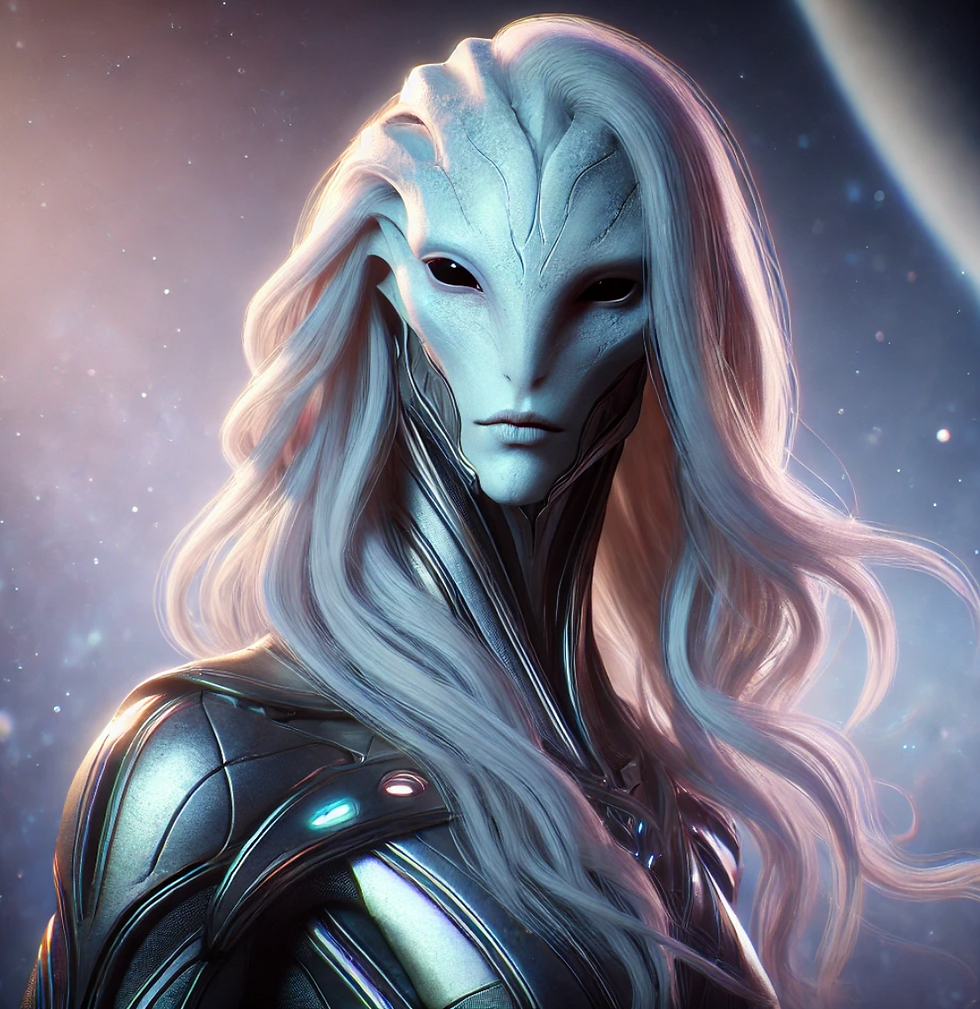Chapter 1" The Fall of Atlantis
- oganes karayan
- Sep 21, 2024
- 2 min read
Updated: Oct 2, 2024

The Dark Goddess Al-Mortara, and the Realm of Death
As the Atlanteans continued their descent into madness, driven by the influence of the dark goddess Alamak and their reckless use of hyper-dimensional technologies, another force loomed over their civilization—the goddess of death, Mortara.
Mortara, draped in flowing robes of deep purple, symbolized not just the end of life, but the transition between worlds, the unavoidable reality of mortality that all beings would face. Where Al thrived on corruption and destruction, Mortara represented the final passage for those who had succumbed to death’s embrace. In the shadow of Atlantis’ ruin, her presence grew stronger.

As the Atlanteans’ reckless experimentation with the portal brought forth the ghost-like entities from the other realm, Mortara began to manifest more clearly in their world. For those who gazed upon her, the air grew thick with the weight of inevitability, the feeling that the end of Atlantis had already been sealed. Her arrival was not to judge but to oversee the final act of a civilization consumed by its hubris.
As Urtan and his Sons of Light struggled to close the portal and resist the evil that Al had unleashed, Mortara watched from the edges of reality, waiting for the souls that would soon pass into her domain. She was neither enemy nor ally to Al—her role was simply to usher in the inevitable, the death of a once-great empire.
In the final days of Atlantis, as the oceans rose and the skies darkened, many Atlanteans began to see visions of Mortara. Some welcomed her, believing that death was preferable to the torment they had endured under Alamak’s influence. Others feared her, knowing that their time had come, and there was no escape from the goddess in purple.
Mortara’s influence was felt stronger as the Atlantean cities collapsed into the sea. The Atlanteans who had been consumed by madness, or possessed by the dark entities from the other realm, would soon find themselves standing before her, ready to be judged and guided into the afterlife. To them, Mortara was the silent observer, patiently waiting to lead them into the realm of death.
However, Mortara’s role extended beyond mere death—she also embodied the transformation that came after. The Lemarians, led by Urtan, understood this. They knew that even though Atlantis was doomed, their own survival and spiritual rebirth were tied to Mortara’s power. She was not only the goddess of death but the symbol of new beginnings, for without death, there could be no renewal. The Lemarians believed that by embracing Mortara’s truth, they could rise again, free from the corruption that had destroyed their world.
In the aftermath of Atlantis’ destruction, Mortara’s name would be remembered by the survivors as a reminder of the natural cycle of life and death, and the consequences of tampering with forces beyond their control. As the Lemarians settled in distant lands and turned away from technological dominance, Mortara’s teachings took root, reminding them that death was not the end, but a necessary passage into a new existence.







Comments